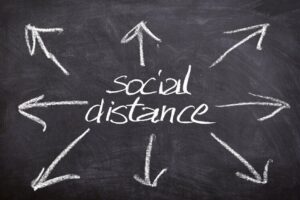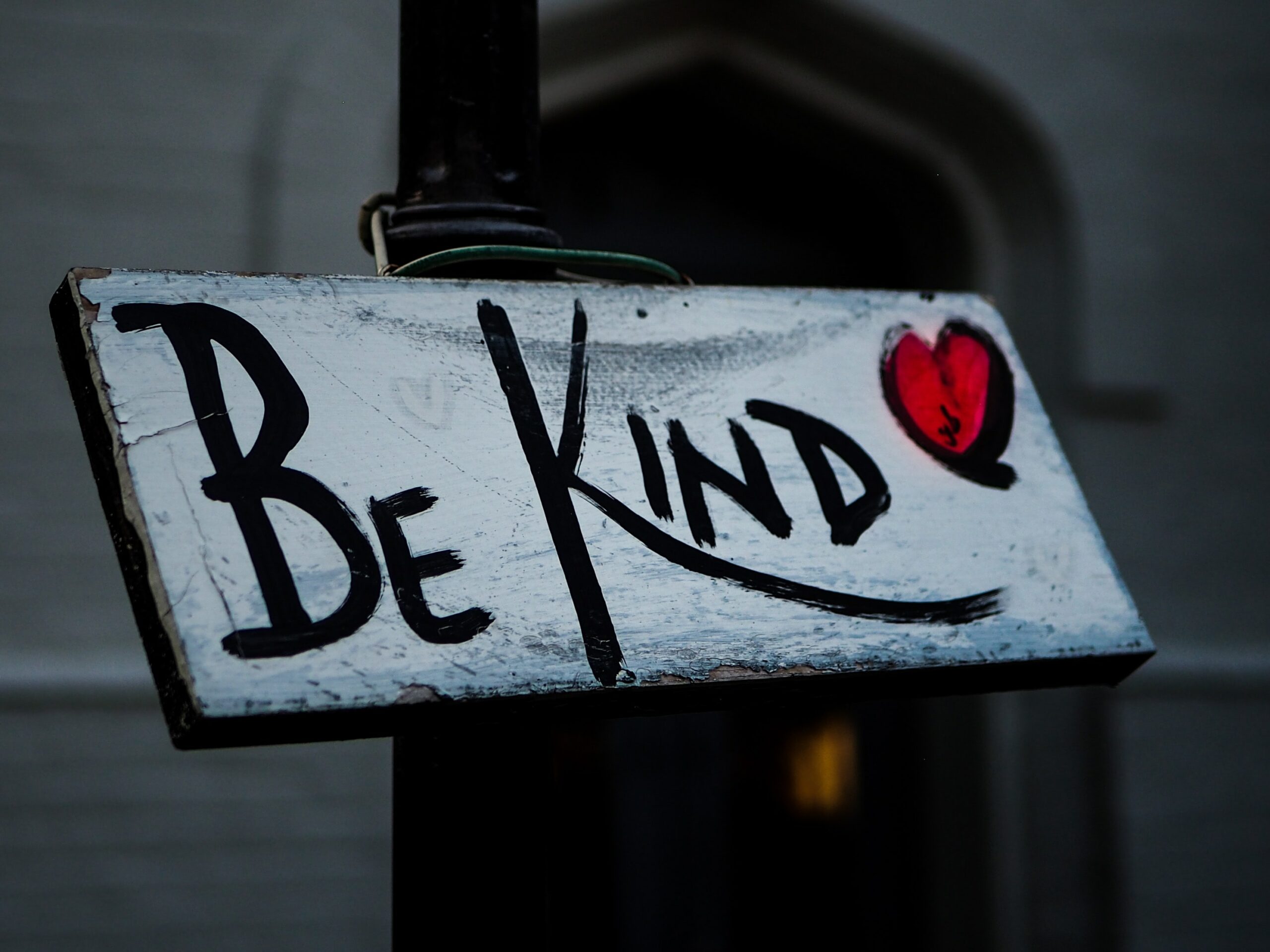The COVID-19 pandemic has shaken so many aspects of our lives. We are being forced to live our lives very differently right now and it makes sense that a lot of different intense emotions would come up. In this five-part series, I will discuss five of the most common ways I’ve seen COVID-19 shake people’s lives and the DBT skills that could be used to cope.
Part 5: Judgments
 For the past month or so, most of us have been plagued with judgments. Judgments about ourselves, other people, and people’s responses to the COVID-19 pandemic are running rampant these days: e.g., judging businesses for staying open or closing, judging people for wearing masks or not, judging ourselves for what we think we should or shouldn’t be doing, judging political figures for particular quotes or decisions, etc. Although judgments certainly have their place, they often serve to amplify our emotions and lead us farther away from a place of calm that we so desperately need right now. Here are some skills that might help with decreasing judgments (and thus, emotions).
For the past month or so, most of us have been plagued with judgments. Judgments about ourselves, other people, and people’s responses to the COVID-19 pandemic are running rampant these days: e.g., judging businesses for staying open or closing, judging people for wearing masks or not, judging ourselves for what we think we should or shouldn’t be doing, judging political figures for particular quotes or decisions, etc. Although judgments certainly have their place, they often serve to amplify our emotions and lead us farther away from a place of calm that we so desperately need right now. Here are some skills that might help with decreasing judgments (and thus, emotions).
-
Nonjudgmentalness
Nonjudgmentalness is describing the facts of the situation without evaluating it as good or bad, right or wrong. Notice the judgments (e.g., comparison words like good or bad, right or wrong, should or shouldn’t) and step back to figure out what you really mean. Oftentimes we use judgments as shorthand language to get a point across quickly. So, for example, if you see someone in a store who is standing thisclose to the person in front of them, instead of judging them by thinking, “that person is stupid/rude/disrespectful,” take a moment to step back and describe the facts. A nonjudgmental approach to that situation might be to think, “That person is less than one-foot from the customer in front of him. He is putting himself and others at risk for contracting COVID-19.” (As an aside, take a moment to check in on your emotions as you read the judgment versus the nonjudgmental statement; you might see what I mean about judgments amplifying emotions). When practicing nonjudgmentalness, you can acknowledge your emotions, values, wishes, and preferences, e.g., “I wish he would stand at least six-feet from the person in front of him” versus “he SHOULD (judgment word) stand six-feet from the person in front of him.” Nonjudgmentalness takes work and isn’t easy, but will get easier the more you practice it.
-
Loving Kindness
 Judgments often bring up unpleasant emotions towards ourselves or others, particularly anger. One way to decrease a tendency toward being judgmental is to practice loving kindness. Loving kindness is essentially mentally sending well-wishes toward another person or being, or even yourself. An example would be, “May you be safe and protected. May you be healthy. May you be peaceful.” You can choose whatever well-wishes are most genuine to you. If you’ve never practiced this before, you may want to avoid practicing loving kindness toward someone who enrages you and instead start out by sending well wishes toward someone who only frustrates you a little bit, perhaps like the person in the example above. Instead of judging that person, send them well-wishes: “May you be safe and protected. May you be healthy. May you be peaceful.”
Judgments often bring up unpleasant emotions towards ourselves or others, particularly anger. One way to decrease a tendency toward being judgmental is to practice loving kindness. Loving kindness is essentially mentally sending well-wishes toward another person or being, or even yourself. An example would be, “May you be safe and protected. May you be healthy. May you be peaceful.” You can choose whatever well-wishes are most genuine to you. If you’ve never practiced this before, you may want to avoid practicing loving kindness toward someone who enrages you and instead start out by sending well wishes toward someone who only frustrates you a little bit, perhaps like the person in the example above. Instead of judging that person, send them well-wishes: “May you be safe and protected. May you be healthy. May you be peaceful.” -
Wise Mind
When you’re judging yourself or others, it can help to get into your “Wise Mind,” that balance between emotion and reason. Wise Mind is sort of like intuition and can be a centered place of peace and calm. Wise Mind can help you see things from a more balanced perspective. There are many ways to activate your Wise Mind. One simple way is to think “Wise” as you breathe in and “Mind” as you breathe out. Don’t worry about changing or slowing your breathing, just focus your full attention on the words “Wise” and “Mind” as you breathe in and out, respectively. If you have any certain things that you already do that help you feel centered, you can try those, too.
-
Self-Soothe
Another helpful way to decrease judgments, especially judgments toward yourself, is by self-soothing, or doing things that
 you find soothing. You can self-soothe by looking at things you find soothing (e.g., a pet, nature, pictures of the ocean), listening to soothing sounds (e.g., rain, white noise, classical music, ocean waves), touching something soothing (e.g., wrapping yourself in towel fresh out of the dryer, wearing a piece of clothing that feels good, resting on fresh sheets), smelling a soothing smell (e.g., lavender, eucalyptus, coffee), and tasting something soothing (e.g., ice cream, hard candy, tea). It can be really easy to judge yourself right now, especially when holding yourself to expectations that can be difficult to meet during a pandemic, so finding ways to soothe yourself is really important.
you find soothing. You can self-soothe by looking at things you find soothing (e.g., a pet, nature, pictures of the ocean), listening to soothing sounds (e.g., rain, white noise, classical music, ocean waves), touching something soothing (e.g., wrapping yourself in towel fresh out of the dryer, wearing a piece of clothing that feels good, resting on fresh sheets), smelling a soothing smell (e.g., lavender, eucalyptus, coffee), and tasting something soothing (e.g., ice cream, hard candy, tea). It can be really easy to judge yourself right now, especially when holding yourself to expectations that can be difficult to meet during a pandemic, so finding ways to soothe yourself is really important. -
PLEASE
We are currently very vulnerable to emotions right now; many of us have anxiety running in the background with the COVID-19 pandemic going on. To decrease our vulnerability toward our emotion mind as well as judgments, it’s important that we take care of our minds by taking care of our bodies. This is an especially important skill if you are judging yourself a lot. PLEASE is an acronym for the following:
-
 Treat PhysicaL illness: Although COVID-19 makes it undesirable to visit the doctor, it’s still important to treat any illness going on; if you have a concern, you can see if your physician offers e-visits. It’s also important to make sure you’re taking your medications as prescribed, using any prescribed devices (e.g., CPAP, braces), and following doctors’ orders.
Treat PhysicaL illness: Although COVID-19 makes it undesirable to visit the doctor, it’s still important to treat any illness going on; if you have a concern, you can see if your physician offers e-visits. It’s also important to make sure you’re taking your medications as prescribed, using any prescribed devices (e.g., CPAP, braces), and following doctors’ orders. -
Eat a balanced diet: Although tempting to snack all day, eat regularly and mindfully.
-
Avoid mood-Altering substances: It may also be tempting to drink a little more than usual, but this could make you more emotional and judgmental. Do your best to use alcohol in moderation (if at all) and avoid drugs.
-
Balanced Sleep: Allow for at least a 7-hour sleep opportunity. Try your best not to sleep more than 9 hours unless recommended by your physician.
-
Exercise: Try to get at least 20 minutes of exercise every day. Even though gyms may be closed, you can go for a walk, climb stairs, and attend virtual fitness classes.
We’ve covered five ways to decrease judgments during the COVID-19 pandemic. Even though judging others may feel good and give you an outlet for pent-up anger and anxiety, judgments often make things worse and can lead you to act in ways that are not aligned with your goals. I can’t emphasize enough how important it is to practice being nonjudgmental of yourself right now. Remember that this is a hard time for everyone and we’re likely not going to be at 100% right now. Give yourself the room to be imperfect and make mistakes, and know that you’re in good company with others who are trying to find their way during this time.
This marks the last post in this five-part series on using DBT skills to cope with COVID-19. Be sure to read Part 1 to learn how to use DBT skills to cope with isolation and social distancing, Part 2 to learn how DBT skills can help you manage fear related to COVID-19, and Part 3 to learn how to cope with change related to COVID-19, and Part 4 to learn how cope with boredom.
Want to learn more about DBT skills? Click here to learn about the DBT skills training groups we offer at the Cincinnati Center for DBT. We offer online individual and group therapy if you need more individualized assistance in coping with this COVID-19 pandemic.

